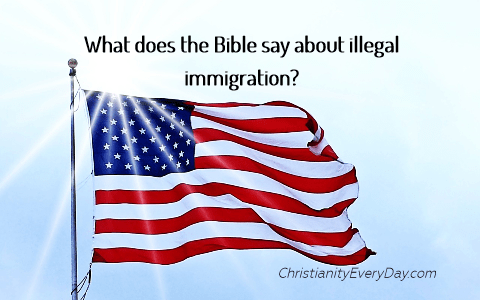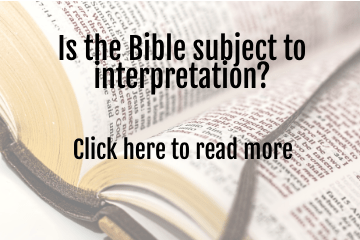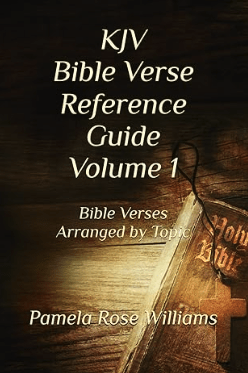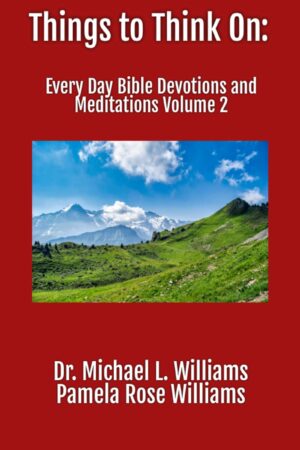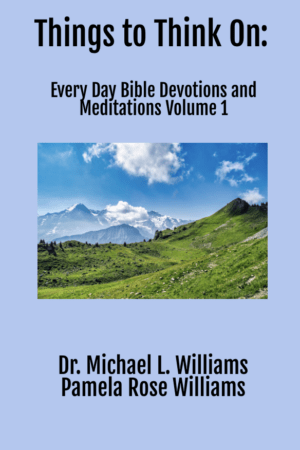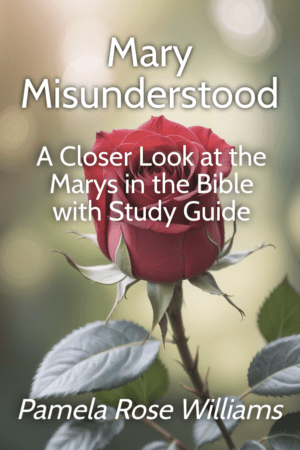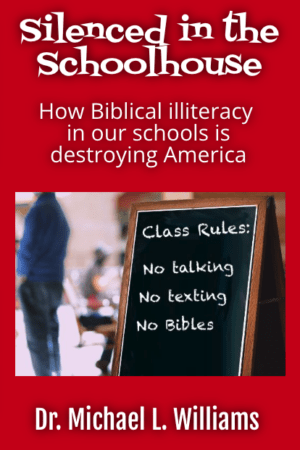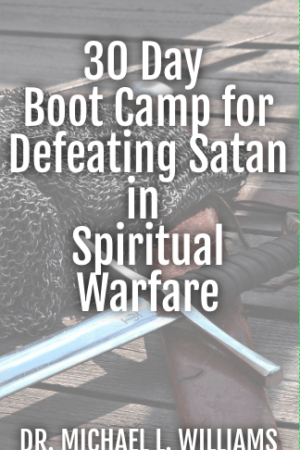Introduction
In America, like many countries, not many issues can raise public passions higher than the topic of illegal immigration. While those arguing about what should be done make valid points and counter points, what is so disturbing is that there is a deafening silence from the church about what the Bible says about illegal immigration. With that being said, what does the Bible say about illegal immigration?
The first thing that needs to be considered is not the topic of illegal immigration, but what the Bible says about immigration in general. This is because if we do not understand immigration from a Biblical perspective, how can we determine what is “illegal immigration?” Likewise, before we can consider the topic of immigration in general, we need to find out what the Bible says about what defines the boundaries of a nation. Once we define what the Bible says about the boundaries of a nation, then we need to look at what the Bible says about what is expected of the people who live within that nation.
A Dictionary Definition
Starting with what defines the boundaries of a nation, we can start by defining the term “nation.” According to Webster’s 1928 Dictionary, the English word nation is defined as follows:
NATION, n. [to be born]
1. A body of people inhabiting the same country, or united under the same sovereign or government; as the English nation; the French nation. It often happens that many nations are subject to one government; in which case, the word nation usually denotes a body of people speaking the same language, or a body that has formerly been under a distinct government, but has been conquered, or incorporated with a larger nation. Thus the empire of Russia comprehends many nations, as did formerly the Roman and Persian empires. Nation, as its etymology imports, originally denoted a family or race of men descended from a common progenitor, like tribe, but by emigration, conquest and intermixture of men of different families, this distinction is in most countries lost. 2. A great number, by way of emphasis.
Of particular note is that while the term nation is often thought of as a country under the same sovereign or government, it is described as a “body of people inhabiting the same country,” “speaking the same language” or “has formerly been under a distinct government, but has been conquered, or incorporated with a larger nation.”
Lineage and Heritage
On a deeper level, this definition mentions the etymology, or origin, of the word nation, which denotes a family or lineage of men descending from a common ancestry. However, by emigration, conquest, and even marriage, this mixture of different families come to share a common lineage and heritage. Furthermore, the root of the word nation, is where we also get the word natal or prenatal, which relates to birth. Hence the word nation, comes from a root that means to be born, or born again, into a family.
While we do not look to this definition to tell us what the Bible says, it does help us to understand why the choosing of the English word nation was made when the King James translators were translating it from the Bible’s original languages. With this in mind, it is simple to see that the original meaning of the word nation presented the idea that a nation consists of people who share a common heritage, language, and culture.
Nation
Likewise, the word nation did not explicitly refer to a geographically well-defined border as is thought of today. The first use of the word nation in the Bible is found in Genesis 12:1-3 as follows:
(Genesis 12:1-3 KJV) “Now the LORD had said unto Abram, Get thee out of thy country, and from thy kindred, and from thy father’s house, unto a land that I will show thee: (2) And I will make of thee a great nation, and I will bless thee, and make thy name great; and thou shalt be a blessing: (3) And I will bless them that bless thee, and curse him that curseth thee: and in thee shall all families of the earth be blessed.” (Emphasis added)
These verses refer to a time when God called Abram, known later as Abraham, out of a land called Ur of the Chaldees (Genesis 11:28). The context of this verse in Genesis 11 is the listing of the genealogy of the lineage of Abram to Shem, the blessed son of Noah (Genesis 9:26-27). Likewise, this lineage continues from Noah, a descendant of Seth, the third son of Adam and Eve (Genesis 4:25-26), who was born after the murder of Abel by his brother Cain.
Country
These verses also tell us that Abram was called out of his country, Ur of the Chaldees, and away from his relatives to go to a land that God would later show him. Like the word nation, this too is the first use of the word country. However, when looking at the English word country in the Webster’s 1828 dictionary, we see that it has a different meaning than the word nation.
COUNTRY, n. [L., land adjacent to a city. Hence the citizen says, let us go into the country. The Latin has conterraneus, a countryman.]
1. Properly, the land lying about or near a city; the territory situated in the vicinity of a city. Our friend has a seat in the country, a few miles from town. See Mark 5. Luke 8. Hence,2. The whole territory of a kingdom or state, as opposed to city. We say, the gentleman has a seat in the country, at any distance from town indefinitely. Hence,3. Any tract of land, or inhabited land; any region, as distinguished from other regions; a kingdom, state or lesser district. We speak of all the countries of Europe or Asia. “And they came into the country of Moab” (Ruth 1.4). The kingdom, state or territory in which one is born; the land of nativity; or the particular district indefinitely in which one is born. America is my country, or Connecticut is my country. Laban said, “It must not be so done in our country” (Genesis 29.5). The region in which one resides. “He sojourned in the land of promise, as in a strange country” (Hebrews 11.6). Land, as opposed to water; or inhabited territory. “The shipmen deemed that they drew near to some country” (Acts 27.7). The inhabitants of a region. “All the country wept with a loud voice” (2 Samuel 15.8). A place of residence; a region of permanent habitation. “They declare plainly that they seek a country” (Hebrews 11:14). “They desire a better country, a heavenly” (Hebrews 11.9. In law, a jury or jurors; as, trial by the country, per pais.
COUNTRY, a.1. Pertaining to the country or territory at a distance from a city; rural; rustic; as a country town; a country seat; a country squire; a country life; the country party, as opposed to city party.2. Pertaining or peculiar to ones own country. He spoke in his country language.3. Rude; ignorant. Country-dance, and erroneous orthography. [See Contra-dance.]
Notice how the word country pertains to property or land and not families. The Latin, conterraneus, is where we get our word terrain, referring to the land. It is important to make this distinction, because customs can vary based on families and peoples from countries because countries are geography based.
Regions and Cultures
An example of this can be seen when comparing differing regions of the United States. In the southwest United States the Latino populace has a strong influence on the culture. It is common to hear people speaking English and Spanish in public and a large percentage of the television stations broadcast in Spanish. Likewise, it is commonplace to see Mexican food on menus even at restaurants that traditionally do not serve Mexican food at locations in other parts of the country. Also, it is not unusual to see festivals, celebrations, and musical groups that are common in Latino cultures to be celebrated and enjoyed by Latinos and non-Latinos alike. If one were to examine an area around New Orleans and south Louisiana, one would find a Cajun and French influence. In California, one could find a Chinese influence. In the upper Midwest, a strong Norwegian, Swedish, and German influence. Yet, despite these regional differences, they all make up the country we know as the United States.
When you combine the influences of all the cultures in the United States of America, it is then no surprise that there would be differing opinions on the country’s immigration policy. Since the United States is a representative republic, until the different cultures agree on an immigration policy, there will continue to be disagreement on how the policy is carried out. On the other hand, when you break down opinions on immigration policy regionally, you find that some areas are strongly in favor of one policy while other areas are strongly against the same. So, then how do we decide what the proper policy should be? Like everything else in life, we must look to a source of wisdom that is superior to all nations and countries. The obvious choice is God’s Word because God’s Word is superior in wisdom and knowledge (Proverbs 2:6; Proverbs 11:12; 1 Corinthians 1:30; 1 Corinthians 12:8).
What Does God Say About Immigration?
While we can debate all day about immigration policy, as Christians with a Biblical worldview we need to follow what God says about immigration. As mentioned previously, Abram was called out of his country, Ur of the Chaldees, and away from his relatives to go to a land that God would later show him. This by definition made Abram and his family immigrants. In fact, God told Abram in a dream that he and his family would be strangers in a land that is not theirs and that they would be afflicted by the people of the lands for 400 years as follows:
(Genesis 15:13-14 KJV) “And he said unto Abram, Know of a surety that thy seed shall be a stranger in a land that is not theirs, and shall serve them; and they shall afflict them four hundred years; (14) And also that nation, whom they shall serve, will I judge: and afterward shall they come out with great substance.”
It is interesting to note that not only did God tell Abram what would happen to his people, but he also said that the people of the nation whom they will serve as slaves, God will judge. This is something that the people of any nation must keep in mind when it comes to how they treat immigrants; if they oppress and abuse them, it is not pleasing to God.
In Genesis 23 the story is told of Abraham’s (FKA Abram) interactions with the Heth family in the land of Canaan when seeking a place to bury his wife Sarah. During the conversation, Abraham respectfully requested to buy a place to bury Sarah. Instead of selling him the land, Heth wanted to give Abraham the land to bury her. Their actions are an example of compassion they showed for Abraham in his time of mourning.
In Exodus 20:17-19 we begin to see the application of God’s law to the “strangers” living in the same land as the Israelites:
(Exodus 12:17-19 KJV) “And ye shall observe the feast of unleavened bread; for in this selfsame day have I brought your armies out of the land of Egypt: therefore shall ye observe this day in your generations by an ordinance for ever. (18) In the first month, on the fourteenth day of the month at even, ye shall eat unleavened bread, until the one and twentieth day of the month at even. (19) Seven days shall there be no leaven found in your houses: for whosoever eateth that which is leavened, even that soul shall be cut off from the congregation of Israel, whether he be a stranger, or born in the land.”
Of particular note is that those that were “strangers” in their land (immigrants) were given the opportunity to participate in the same feast as the Israelites. Those who refused, Israelite or stranger, would be “cut off.” The term “cut off” is used in several different contexts in Scripture, varying from being separated from the people to being put to death Spiritually speaking. The Jewish understanding of the same, called Karat, points specifically to the idea of being separated from the people. This is explained in the following article excerpt that was once published at the former Made In Israel online magazine:
“While the promise to Abram is unconditional, an individual’s share in it is not. Being Jewish by birth is only the beginning (cf. Matthew 3:4-9). Being a Jew means maintaining a proactive involvement with all of the elements that define us: God, Torah, Land, and People. The Torah often says that those who do [the commandments] will live by them and have long life in the land that he promised to our fathers (Deut. 32:46-47).”
“Every Jew must regularly check his Jewish “barometer.” Are we binding ourselves to our people and land, to our Torah and our God? What practical things are we doing every day in order that we not be cut off, and forfeit our share in Israel’s inheritance?”
Learn the Language and Adopt the Customs
What we can learn from this is that there is an emphasis on maintaining one’s perspective on who they are in practical ways. As people immigrate to a new land, there is an expectation to assimilate with the people of their new homeland. There is an expectation that immigrants would seek to maintain “a proactive involvement with all the elements that define us.” In the United States, this has been what has historically happened. People who immigrated to the United States willingly made the effort to become an American. They learned English; adopted many of the customs such as national holiday celebrations, enjoyment of popular foods, attending public events like baseball games, and they sought to be part of a melting pot in an effort to become American, all the while, still respecting and maintaining many of their own customs and practices alongside of the customs and practices of others.
However, in recent history, becoming part of the “melting pot” has been downplayed or even discouraged as being racist, bigoted, or even hateful toward immigrants out of an idea that a nation can somehow stay a nation with people who do not make any attempt to assimilate into a common culture. This is not to say that continuing traditions, celebrations, cuisine, etc. that were observed in the immigrants’ native lands should be forsaken, but to maintain the same without adopting any of the traditions, celebrations, cuisines, etc. of the immigrants’ new home prevents them from being part of the fabric which makes up a nation. Of course, we must always weigh what aspects of the culture we adopt in the light of Scriptural admonition.
On the other hand, Biblically speaking there were some laws that applied to the people that were home born, or citizens, and there were laws that applied to immigrants or those visiting from other lands as seen in Exodus 12:49 (KJV): “One law shall be to him that is home born, and unto the stranger that sojourneth among you.” Despite this mention of separate laws that applied to immigrants, there was a strong admonition not to mistreat immigrants as found in Exodus 22:21-33 and Exodus 23:9 as follows:
(Exodus 22:21-23 KJV) “Thou shalt neither vex a stranger, nor oppress him: for ye were strangers in the land of Egypt. (22) Ye shall not afflict any widow, or fatherless child. (23) If thou afflict them in any wise, and they cry at all unto me, I will surely hear their cry;”
(Exodus 23:9 KJV) “Also thou shalt not oppress a stranger: for ye know the heart of a stranger, seeing ye were strangers in the land of Egypt.”
(See also Deuteronomy 14:21)
All People are Immigrants!
This admonition is made in light of the fact that all people at one point in history since Adam and Eve have been immigrants. Even in North America, those identified as “Native Americans” have been shown through DNA studies to have come from Asia and through migration, traveled through what is modern day Russia across to Alaska and southward all the way to South America. However, what is important is that God said that if we inflict immigrants in any way and they cry out to God, He will hear their cry. This should give us all pause, even those who advocate animosity against descendants of immigrants who oppressed peoples of native cultures.
We also see in Scripture where God prohibited certain benefits from being given to those who were not part citizens of the nation as follows:
(Exodus 30:31-33 KJV) “And thou shalt speak unto the children of Israel, saying, This shall be an holy anointing oil unto me throughout your generations. (32) Upon man’s flesh shall it not be poured, neither shall ye make any other like it, after the composition of it: it is holy, and it shall be holy unto you. (33) Whosoever compoundeth any like it, or whosoever putteth any of it upon a stranger, shall even be cut off from his people.”
(Leviticus 22:10-13 KJV) “There shall no stranger eat of the holy thing: a sojourner of the priest, or an hired servant, shall not eat of the holy thing. (11) But if the priest buy any soul with his money, he shall eat of it, and he that is born in his house: they shall eat of his meat. (12) If the priest’s daughter also be married unto a stranger, she may not eat of an offering of the holy things. (13) But if the priest’s daughter be a widow, or divorced, and have no child, and is returned unto her father’s house, as in her youth, she shall eat of her father’s meat: but there shall no stranger eat thereof.”
Despite those who were not citizens lacking certain benefits, there was still a provision for individuals to feed those in need (Leviticus 19:10, Leviticus 23:22; Deuteronomy 10:18-19) and to treat them as one of their own (Leviticus 19:33-34). Treating them as one of their own also applied to the application of criminal laws (Leviticus 24:16-18; Leviticus 24:16-18; Leviticus 24:19-20, Leviticus 24:21-22).
There are many more examples of these provisions in Scripture, but of particular note is the emphasis on assimilation if they are going to remain in the land to live as follows: Exodus 12:48; Exodus 20:10; Exodus 23:12; Leviticus 16:29; Leviticus 17:12; Leviticus 17:15; Leviticus 18:26; Leviticus 24:16; Leviticus 25:6; Numbers 9:14; Numbers 15:14-15; Numbers 15:25-26; Deuteronomy 1:16. With these provisions for immigrants also came expectations that they would respect and thank their host nation (Ruth 2:10).
Jesus spoke of these teachings in the New Testament in Matthew 25:31-46 as follows:
(Matthew 25:31-46 KJV) “When the Son of man shall come in his glory, and all the holy angels with him, then shall he sit upon the throne of his glory: (32) And before him shall be gathered all nations: and he shall separate them one from another, as a shepherd divideth his sheep from the goats: (33) And he shall set the sheep on his right hand, but the goats on the left. (34) Then shall the King say unto them on his right hand, Come, ye blessed of my Father, inherit the kingdom prepared for you from the foundation of the world: (35) For I was an hungered, and ye gave me meat: I was thirsty, and ye gave me drink: I was a stranger, and ye took me in: (36) Naked, and ye clothed me: I was sick, and ye visited me: I was in prison, and ye came unto me. (37) Then shall the righteous answer him, saying, Lord, when saw we thee an hungered, and fed thee? or thirsty, and gave thee drink? (38) When saw we thee a stranger, and took thee in? or naked, and clothed thee? (39) Or when saw we thee sick, or in prison, and came unto thee? (40) And the King shall answer and say unto them, Verily I say unto you, Inasmuch as ye have done it unto one of the least of these my brethren, ye have done it unto me. (41) Then shall he say also unto them on the left hand, Depart from me, ye cursed, into everlasting fire, prepared for the devil and his angels: (42) For I was an hungered, and ye gave me no meat: I was thirsty, and ye gave me no drink: (43) I was a stranger, and ye took me not in: naked, and ye clothed me not: sick, and in prison, and ye visited me not. (44) Then shall they also answer him, saying, Lord, when saw we thee an hungered, or athirst, or a stranger, or naked, or sick, or in prison, and did not minister unto thee? (45) Then shall he answer them, saying, Verily I say unto you, Inasmuch as ye did it not to one of the least of these, ye did it not to me. (46) And these shall go away into everlasting punishment: but the righteous into life eternal.” (Emphasis added)
In this passage, Jesus includes the strangers, those not known and immigrants, in the treatment of the homeless, poor, imprisoned, hungry, thirsty, sick, and naked. As believers, this means that although we can see different applications of laws for citizens and non-citizens, those laws should never prohibit us from ministering to everyone’s human needs no matter where they were born.
Immigrants Receiving Benefits
While it is understandable that many people in the United States are not happy with illegal immigrants receiving benefits such as food cards, medical care, and housing, this does not change the fact that God does want us to love our neighbor no matter where they come from. On the other hand, as mentioned previously, there must be a certain respect of the laws of the United States that apply to non-citizens and thankfulness for receiving help.
If those coming to the United States do so illegally, then while we as believers have an obligation to care for them, they who have come illegally must be willing to resolve the issue of their breaking of the law to stay here. Immigration laws were created for a purpose, one of which was to ensure that the immigrants coming in would not harm their hosts. This is where the government of the United States must put in place a program that balances the needs of the people wanting to immigrate with the duty of protecting Americans from being harmed by those wanting to come to the United States to break laws or to do harm to the public at large.
This program needs to first and foremost make provision for the needs of the immigrants, screen them extensively to exclude those who are a risk to the public and set in place expectations that are rigidly enforced to assimilate them into our culture. To do otherwise would violate the principles of Scripture and result in the fragmentation of the nation. Likewise, those persons or organizations that undermine these efforts or break the laws regulating the same must be held accountable for their actions.
With this in mind, elected officials who receive donations from those subverting the effort and laws regulating the immigration and turning a blind eye toward their illegal actions must be held accountable as being accomplices in their actions, removed from office, and punished to the full extent of the law. If there is no enforcement mechanism in the same, then no matter what laws are passed, the same corruption, vote buying, mistreatment, and bad attitudes toward immigrants will persist as a matter of our sinful nature.
As believers, it is our responsibility to do what God has called us to do in this matter as individuals in meeting the needs of immigrants. It is commonplace that many people complain about the size of government, bloated bureaucracy, and wasteful spending. However, many of these people never stop to consider that these things are a direct result of the church, or believers, failing to do what we were called to do to provide for others. Instead, many people who claim to be believers have adopted the attitude that if the government takes care of these human needs issues, then churches can spend their time, efforts, and money on building bigger and nicer churches that are more like social clubs than houses of worship and ministry to those in the community, including immigrants.
The Church’s Role in Immigration
Finally, we should not look to the government to do what the church is supposed to be doing; we need to serve our fellow man our self. In looking to government to do the mission of the church, we miss out on an important opportunity to fulfill the calling that God has given to each of us as believers. When the government feeds the poor without feeding them the Word of God, it starves them spiritually. When the government provides clothing to those who are in need without helping to clothe them in God’s righteousness, it leaves them spiritually naked. When the government treats those with sickness without offering them an appointment with the Great Physician, it leaves them spiritually ill. When the government takes people in and provides housing to them without sharing how they can know for sure that at the end of their life on Earth they have a home with the Lord, it leaves them spiritually homeless.
As Jesus said, when we fail to do these things to the least of these, we have failed to do these things to Him. We should pray for God’s forgiveness in how we have not ministered to the strangers in our land and ask Him for the wisdom, strength, and direction to solve this crisis. In doing so, we can demonstrate our love to Him, by demonstrating our love to our neighbors, no matter where they come from. May God bless us in these efforts to His praise and glory.

Dr. Michael L. Williams, Head of Ministry Operations and Technology at Christianity Every Day, is a Christ-centered Author, Educator, Biblical Counselor and Advisor. He is ordained in Pastoral Ministry and formerly the founding Pastor of Selah Mountain Ministries, a church started along with his wife, Pamela Rose, after several years of pastoral experience and training in Biblical Counseling. Selah Mountain provided Biblical counseling and education to the public on how to overcome life issues Biblically on topics such as anger management, marriage, addictions, and other subjects – often referred to as mental illnesses. To learn more about Dr. Mike visit the About page.
